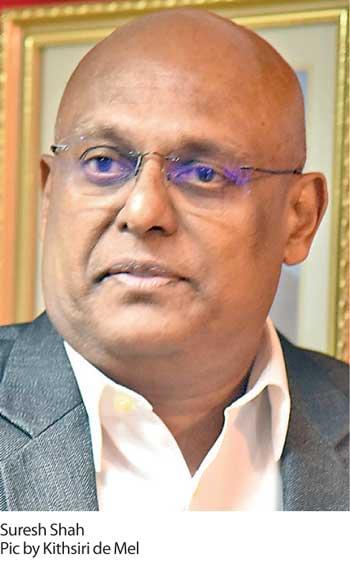Reply To:
Name - Reply Comment
 By Nishel Fernando
By Nishel Fernando
Marking another milestone in Sri Lanka’ State Owned Enterprises (SOEs) reform journey, plans are afoot to enact the draft SOE Act by the first half of 2024, granting the much needed legislative authority and operational effect to the SOE reform process.
A copy of draft legislation was handed over to President and Ministry of Finance this Monday.
“If everything goes well, the legislation process will be completed by May-June,” Head of State-Owned Enterprises Restructuring Unit (SOERU) Suresh Shah said.
He shared the update while addressing a seminar on ‘Enhancing efficiency of state-owned enterprises’ organised by the Organization of Professional Associations of Sri Lanka (OPA) this week.
To ensure transparency and effective management, the draft legislation is based on nine guiding principles stipulated in the Cabinet approved the SOE reform policy, covering board appointments, policies, financial aspects and and others.
Around 85 SOEs have been identified as commercial entities out of 138 SOEs considered by SOERU.
A key highlight of the upcoming legislation is to bring SOEs under a Holding Company (HoCo) which would drive comprehensive reforms of state enterprises, the management and governance of state enterprises, and the state’s portfolio of enterprises.
The proposed HoCo is modeled after Singapore’s Temasek. However, Shah noted that it would take time and effort for this entity to evolve into modern-day Temasek.
Shah shared that the HoCo would be empowered to impose corporate governance norms and disclosures on commercial firms in line with CSE listing rules, while removing special treatment and Treasury guarantees for SOEs.
Without divulging into details, Shah noted that the draft legislation has proposed a transparent mechanism to appoint board members of SOEs and to put an end to the current tradition of political appointments.
Commenting on potential divestments, Shah remarked that SOERU would only embark on the divestment process of SOEs based on Cabinet recommendations, though around 85 SOEs have already been identified as suitable for divestment.
He dismissed the arguments laid against these commercial SOEs in the terms loss revenue to state coffers, threat to national security and national assets, terming them as ‘fundamentally non-starters’.
In the case of SLT, he pointed out that the government could have earned higher potential revenue of Rs.9.6 billion per annum. This would have been possible if the government’s stake was disposed and paced in a consolidated fund against around Rs.1 billion annual revenue coming to State Coffers via dividends, he said.
Plans are currently underway to formally wind down about 17 non-operational State Owned Enterprises (SOEs) that continue to remain legally active with appointed director boards as they are draining public funds.
Head of State-Owned Enterprises Restructuring Unit (SOERU) Suresh Shah highlighted these SOEs, which have director boards continuing to reap the benefits of the allowances and several perks that comes
with the position.